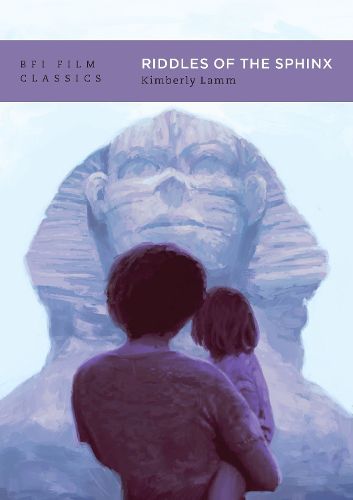Readings Newsletter
Become a Readings Member to make your shopping experience even easier.
Sign in or sign up for free!
You’re not far away from qualifying for FREE standard shipping within Australia
You’ve qualified for FREE standard shipping within Australia
The cart is loading…






A classic of feminist avant-garde cinema, Laura Mulvey and Peter Wollen's Riddles of the Sphinx (1977) follows the life of Louise (Dinah Stabb), a white middle-class woman living in London in the 1970s, as she confronts the complex politics of motherhood, domestic labour and work. With a kaleidoscopic array of cinematic techniques and poetic devices, the film charts Louise's process as she questions her place within white patriarchal culture and finds her voice within the burgeoning Women's Liberation Movement.
Reading Riddles as an essay film, Kimberly Lamm explores how it utilises voice, sound and writing to challenge Hollywood's dominant images of women and to portray maternal care as a legitimate form of work, rich in aesthetic pleasures and feminist possibilities. She examines the voice of the Sphinx, and, connecting it to feminism's engagement with psychoanalysis, argues that Mulvey and Wollen's film works-through long histories of patriarchal viewing practices and creates conditions in which the full range of women's voices can be listened to, heard and valued. Lamm explores how Riddles, the second collaboration between Mulvey and Wollen, drew inspiration from Wollen's influential work on 'counter-cinema' and Mulvey's foundational writing on 'the male gaze'.
$9.00 standard shipping within Australia
FREE standard shipping within Australia for orders over $100.00
Express & International shipping calculated at checkout
Stock availability can be subject to change without notice. We recommend calling the shop or contacting our online team to check availability of low stock items. Please see our Shopping Online page for more details.
A classic of feminist avant-garde cinema, Laura Mulvey and Peter Wollen's Riddles of the Sphinx (1977) follows the life of Louise (Dinah Stabb), a white middle-class woman living in London in the 1970s, as she confronts the complex politics of motherhood, domestic labour and work. With a kaleidoscopic array of cinematic techniques and poetic devices, the film charts Louise's process as she questions her place within white patriarchal culture and finds her voice within the burgeoning Women's Liberation Movement.
Reading Riddles as an essay film, Kimberly Lamm explores how it utilises voice, sound and writing to challenge Hollywood's dominant images of women and to portray maternal care as a legitimate form of work, rich in aesthetic pleasures and feminist possibilities. She examines the voice of the Sphinx, and, connecting it to feminism's engagement with psychoanalysis, argues that Mulvey and Wollen's film works-through long histories of patriarchal viewing practices and creates conditions in which the full range of women's voices can be listened to, heard and valued. Lamm explores how Riddles, the second collaboration between Mulvey and Wollen, drew inspiration from Wollen's influential work on 'counter-cinema' and Mulvey's foundational writing on 'the male gaze'.